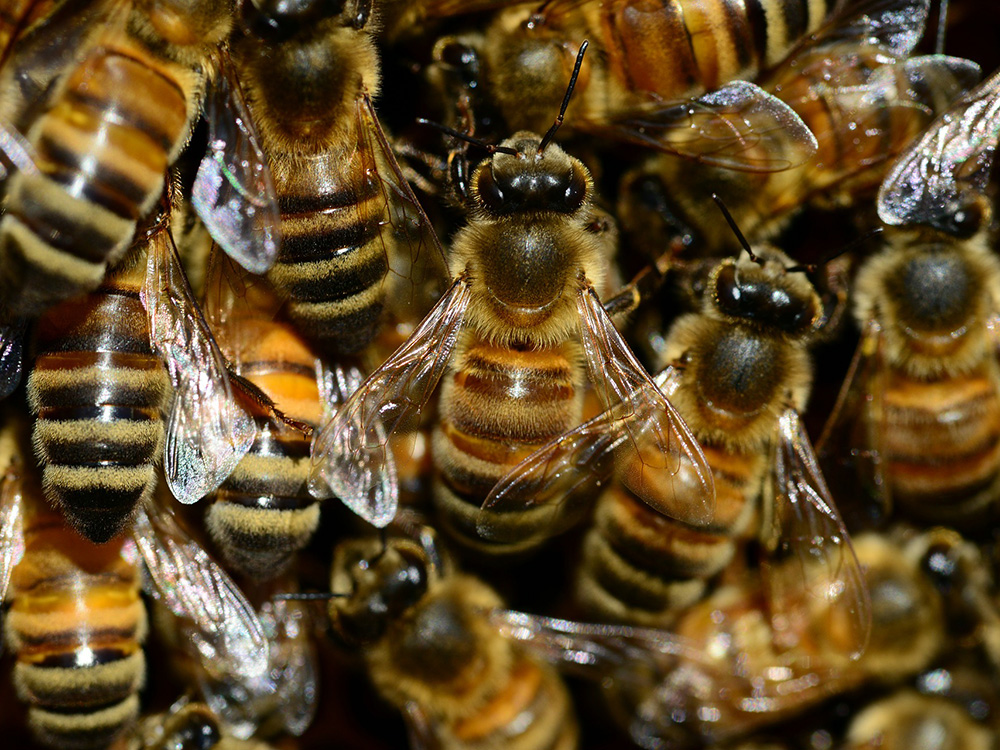Der Anteil der Honigbienenvölker, die den Winter nicht überleben, schwankt stark über die Jahre und Regionen. Den Winter 2017/18 haben rund zwölf Prozent der geschätzten 353.000 Bienenvölker in Österreich nicht überlebt. „Die Überwinterung 2017/18 ist für die Bienen recht erfreulich verlaufen, es zeigen sich kaum Gebiete mit hohen Verlusten, die relativ geringe Zahl der verlorenen Völker wurden zum größten Teil bereits wieder nachgeschafft“, erklärt Robert Brodschneider vom Institut für Biologie der Universität Graz. Er erhebt im Rahmen des Projektes Zukunft Biene (Projektleiter Karl Crailsheim) gemeinsam mit ImkerInnen die Sterberate von Bienenvölkern in Österreich und sammelt damit wichtige Daten zum Schutz dieser Insekten. 1391 Imkereien haben dabei Angaben zu insgesamt 28.373 im Herbst 2017 eingewinterten Völkern zur Verfügung gestellt. Im Jahr davor lag die Sterblichkeit bei hohen 23 Prozent. Die Untersuchung wird auch 2019 durchgeführt, um langjährige Trends erkennen zu können.
Wintersterblichkeit von Honigbienen 2017/18 (Stand: 25.6.2018):
| Verlustrate in Prozent | Teilnehmende Imkereien | Beteiligung der Imkereien in Prozent | |
|---|---|---|---|
| Österreich | 11,8 | 1391 | 5,1 |
| Burgenland | 7,9 | 35 | 5,6 |
| Kärnten | 14,5 | 144 | 4,9 |
| Niederösterreich | 12,3 | 409 | 9,0 |
| Oberösterreich | 9,9 | 253 | 3,2 |
| Salzburg | 10,8 | 58 | 2,3 |
| Steiermark | 8,2 | 207 | 5,3 |
| Tirol | 12,0 | 120 | 4,4 |
| Vorarlberg | 10,1 | 105 | 7,1 |
| Wien | 14,4 | 60 | 8,4 |
Wintersterblichkeit von Honigbienen in Österreich seit 2007/08:
| Jahr | Verlustrate in Prozent |
|---|---|
| 2007/08 | 13,3 |
| 2008/09 | 9,3 |
| 2009/10 | 14,7 |
| 2010/11 | 16,4 |
| 2011/12 | 25,9 |
| 2012/13 | 17,3 |
| 2013/14 | 12,8 |
| 2014/15 | 28,4 |
| 2015/16 | 8,1 |
| 2016/17 | 23,0 |
| 2017/18 | 11,8 |
Die Untersuchung wurde nach Standards der internationalen Non-Profit-Vereinigung COLOSS (Prevention of honey bee colony losses) durchgeführt.
Weiterführende Informationen:
www.Zukunft-Biene.at
www.Bienenstand.at
www.coloss.org
